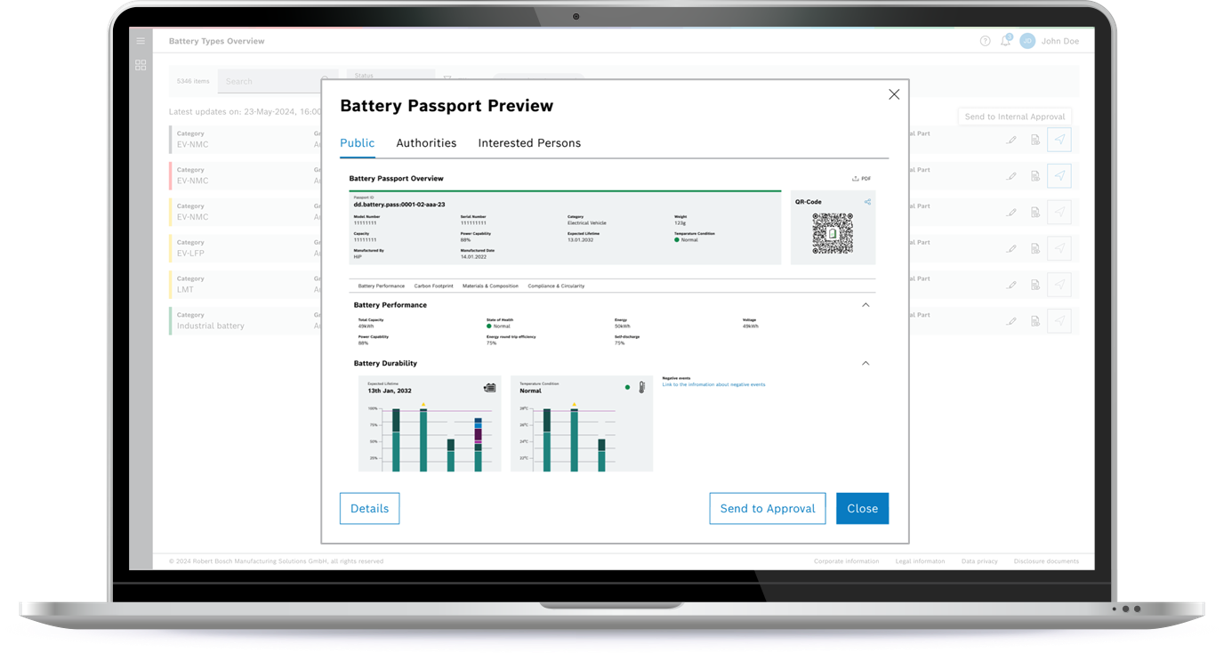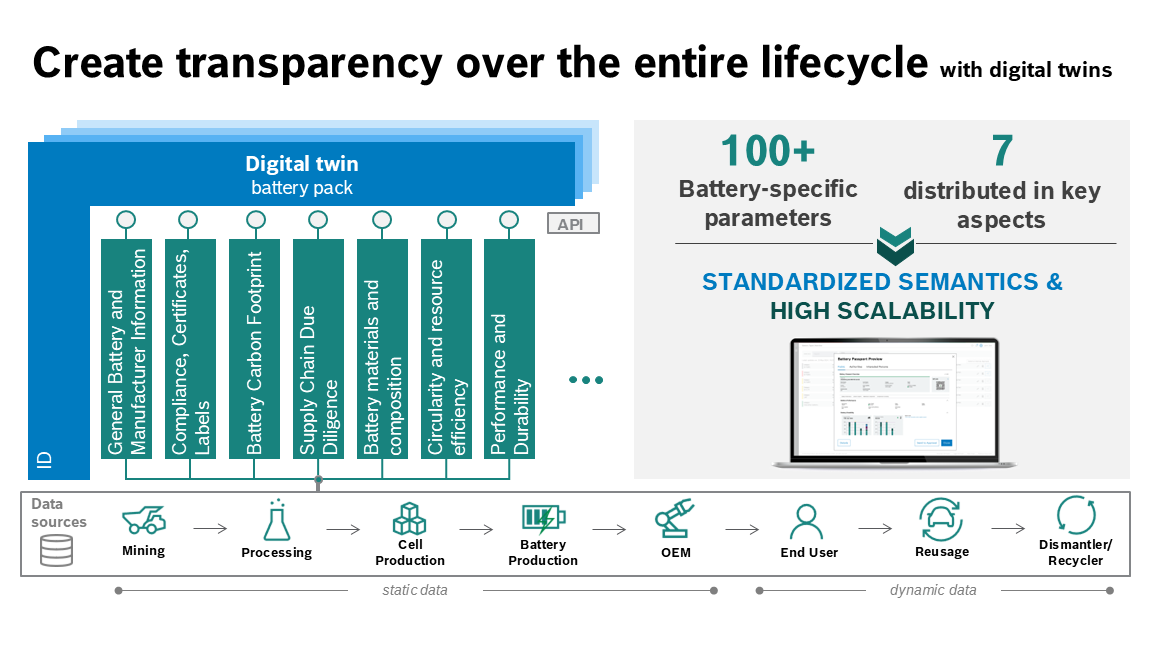What is Battery Passport?
Battery Passport is a software solution that generates and maintains digital product passports for batteries (short: digital battery passports):
-
Fully aligned with EU Battery Regulation
-
End-to-end: from passport generation to lifecycle data analytics and updates
-
Flexible SaaS model optimized for scale and long-term cost efficiency
-
Secure and cloud-native — ready to be embedded into your ecosystem and IT environment
The software is based on Bosch Semantic Stack. It uses digital twins (Asset Administration Shells) to digitally represent your batteries.
You can operate the Battery Passport web application through a graphical user interface directly in your browser.
Capabilities
What can you do with the Battery Passport software? It comes with the following capabilities.
-
Automated creation of battery passports
A digital battery passport is automatically created for various stakeholders: Public, Interested Person, and Authorities. -
Passport data can be retrieved via APIs and user interface
The battery passport can be retrieved via APIs with push and pull services and has also a user-friendly UI. -
Automated calculation of legally prescribed dynamic attributes
For covering various battery types, chemistries, purposes, formats, and sizes. This is seamlessly automated and integrated. -
Authorization management
The various stakeholders only see the data relevant to them, which is ensured by differentiated access controls. -
Comprehensive approval process
Complete review and approval process for all battery data.

Purpose
Embrace the future of sustainable battery management with the Battery Passport software solution, powered by Bosch Semantic Stack.
Growing demand for batteries
The global demand for e-mobility is increasing. While batteries have to be more and more powerful, the raw materials required are becoming scarcer and scarcer. In addition to new methods for the resource- and energy-saving production of batteries, the reuse of the raw materials contained in spent batteries will be particularly important.
As part of its wider regulatory ambitions towards sustainability, the EU is introducing Digital Product Passports (DPPs), the first of which will be required for batteries from 2027.
Legal situation
The European Union’s Battery Regulation (2023/1542) mandates the introduction of digital battery passports (DBPs) for:
-
EV batteries
-
Light means of transport (LMT) batteries
-
Industrial batteries above 2 kWh
Starting in 2027, digital battery passports will provide comprehensive lifecycle information, including performance metrics, chemical composition, material sourcing, and carbon footprint data.
The regulation aims to promote a circular economy by enhancing transparency and enabling better tracking, reuse, and recycling of batteries. While the EU is leading this initiative, global interest is growing.
Standardized data formats and access protocols are expected through delegated acts, fostering interoperability and informed decision-making for stakeholders across the battery value chain.
Turn a challenge into an opportunity
Navigating the complexities of the upcoming digital battery passport regulations also presents a strategic opportunity for organizations.
Transform compliance into a competitive advantage — with the Battery Passport software solution powered by Bosch Semantic Stack.
Leveraging digital twin technology, our software empowers users to create transparency across the entire battery lifecycle, fostering sustainability and enabling data-driven decision-making.
What’s next? → For more details on how standardized digital twins substantiate Battery Passport — and enable interoperability and scaling effects for further solutions, refer to Concepts.
